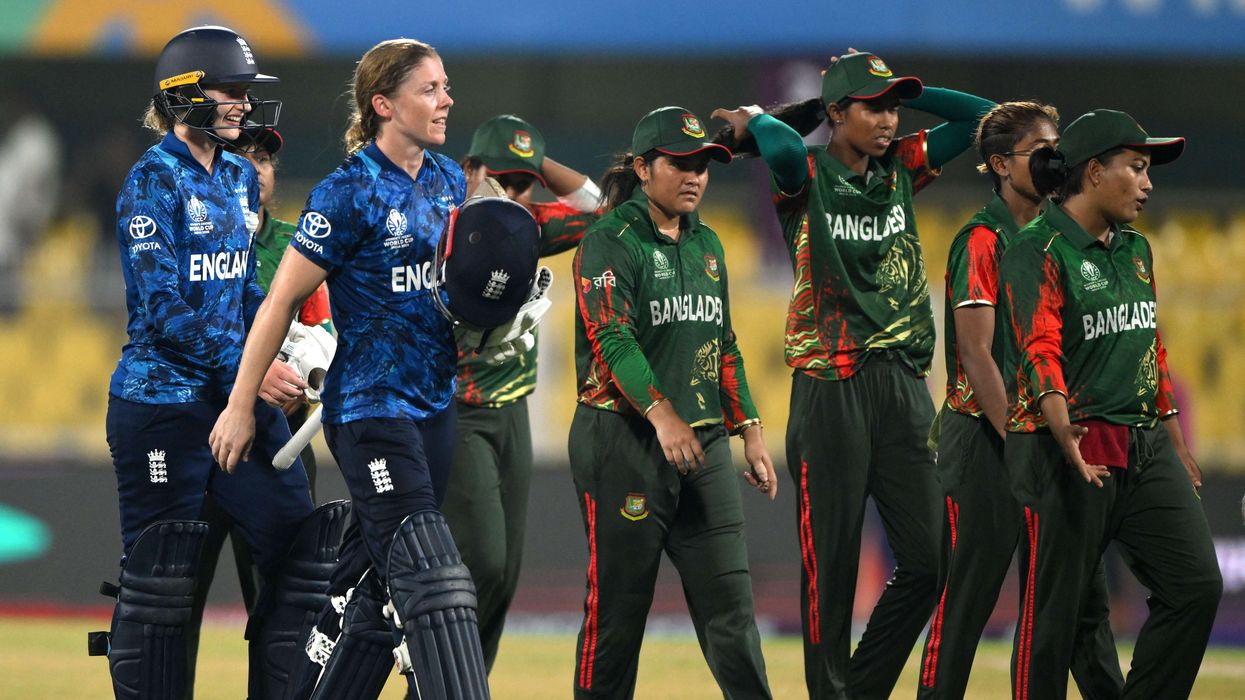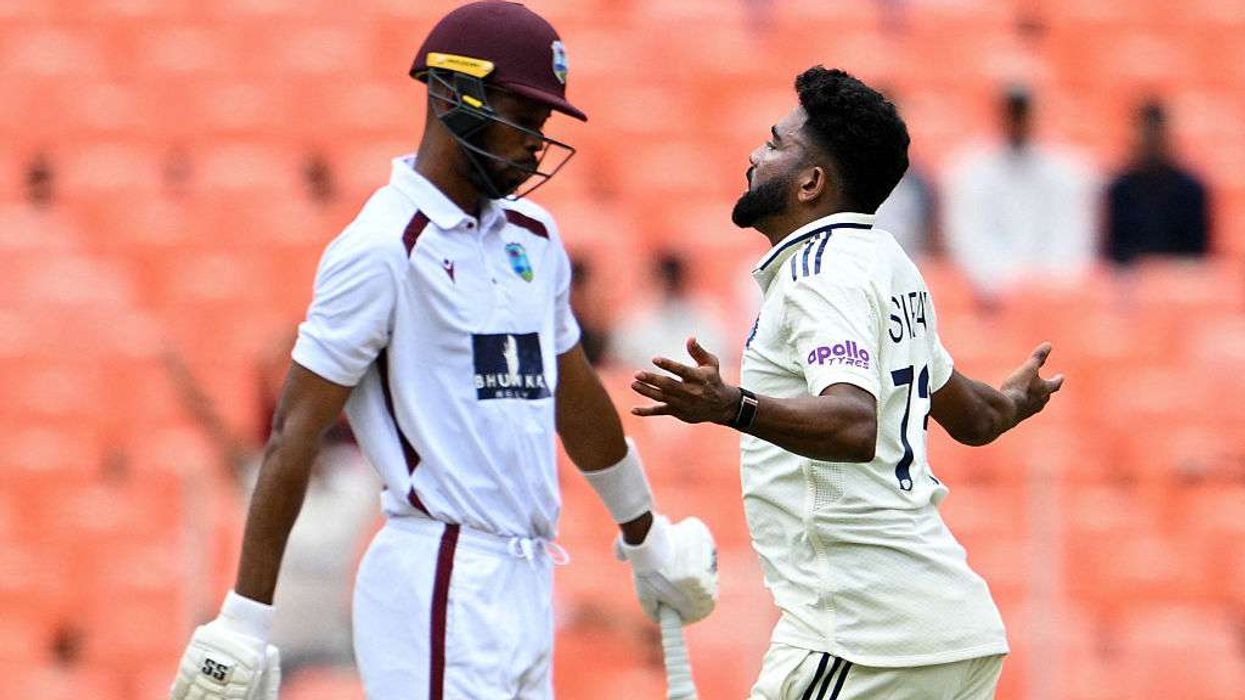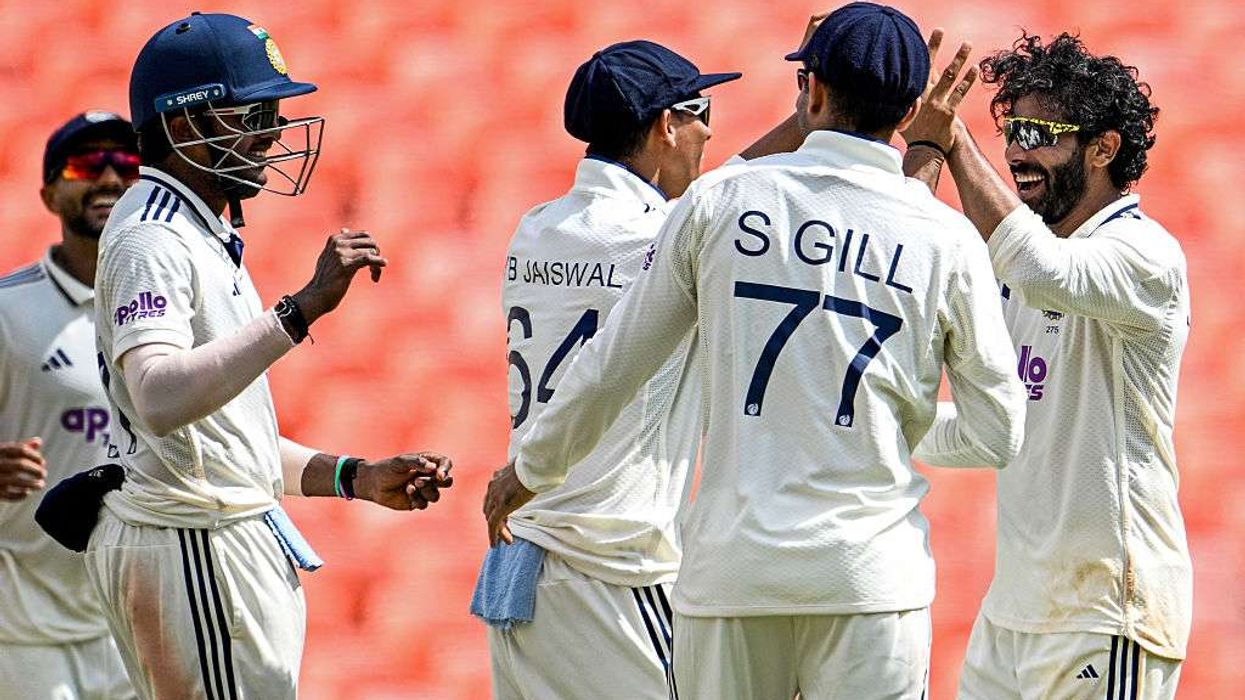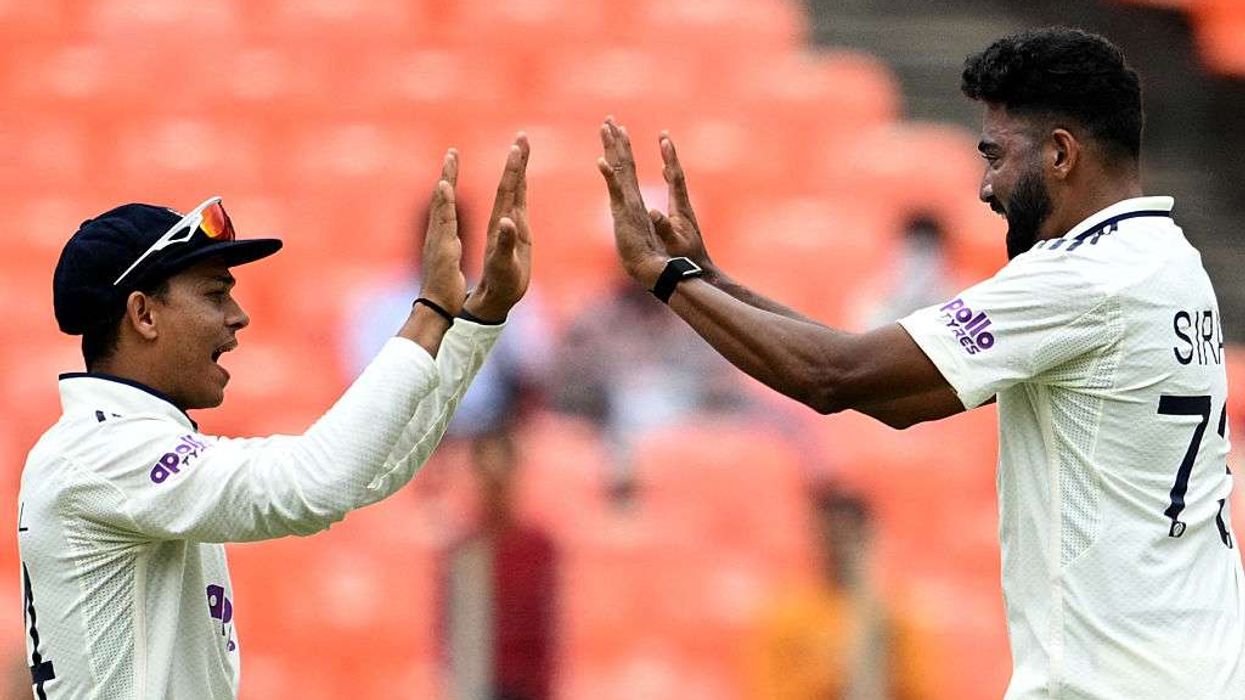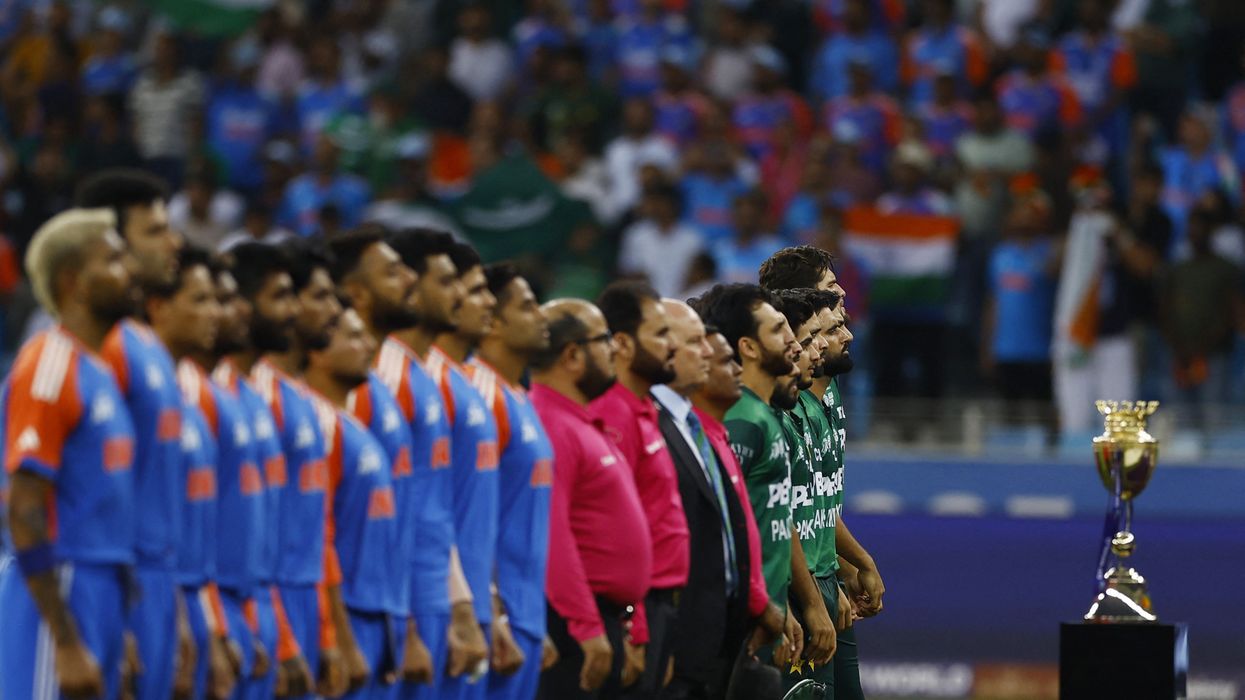ENGLAND went to the top of the Women’s World Cup points table after defeating Bangladesh by four wickets in a tense chase in Guwahati on Tuesday.
Former captain Heather Knight guided England to victory with an unbeaten 79, helping the four-time champions reach the target with 23 balls remaining.
Knight, who lost the captaincy after the Ashes last winter, benefited from three reviews that went in her favour. She survived lbw decisions twice and was given a reprieve after a catch at cover was ruled not clean by the third umpire.
Yet to score, Knight overturned an lbw verdict on review. On eight, another lbw call went in her favour. Then on 12, she was ruled not out after replays showed the fielder had not taken a clean catch.
"It's probably the most reviews I've ever had go my way," Knight said. "That one at cover, I thought it was a fair catch. I walked off, but the TV umpire saw it differently."
Knight’s 27th half-century included eight fours and a six, with the sweep and reverse sweep proving key shots on a slow pitch.
At 103 for six, Bangladesh looked in control, but Knight found support from Charlie Dean as they added 79 runs for the seventh wicket to complete the chase.
Earlier, England’s spinners restricted Bangladesh to 178. Sophie Ecclestone took three wickets, while Linsey Smith, Dean and Alice Capsey took two each.
England fielded a spin-heavy attack to suit the subcontinental conditions, using close-in fielders like slip, silly mid-off and short cover.
Bangladesh struggled to score freely, with Sobhana Mostary top-scoring with 60. Rabeya Khan added 43 off 27 balls with six fours and a six to lift the total.
"We fought till the last ball and that’s what matters," Bangladesh captain Nigar Sultana said. "We were probably 30 short, but I’m proud of the fight the girls showed."
(With inputs from agencies)
